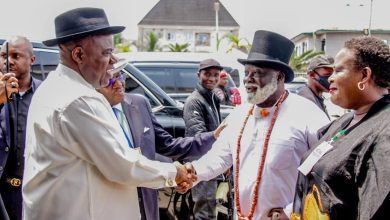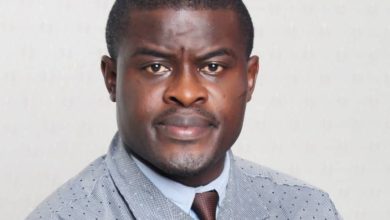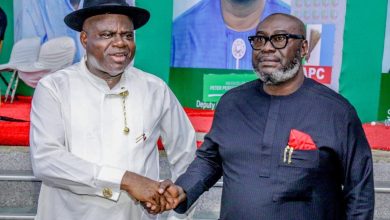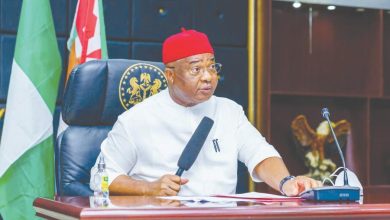Bayelsa Gov. Election: Diri wants international community to monitor poll
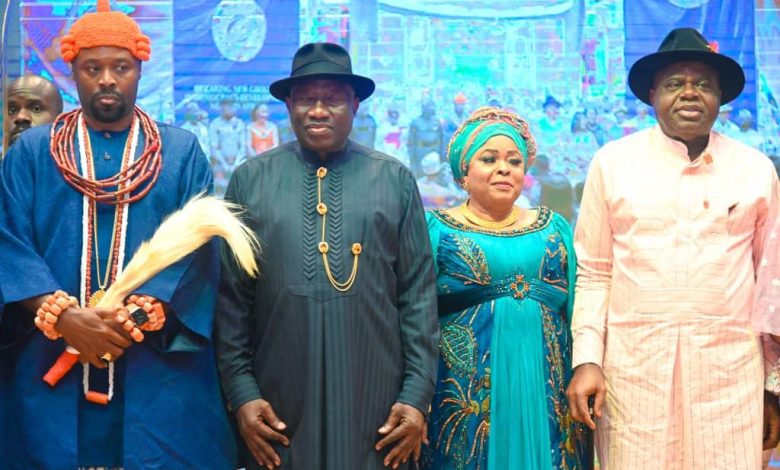
By Ifeanyi Eduzor
Bayelsa State Governor, Senator Douye Diri, on Thursday, invited the international community to observe the November 11 governorship election in the state in order to protect the integrity of the process.
Senator Diri made the call while delivering a welcome address at the Goodluck Jonathan Foundation Democracy Dialogue Series, tagged : “Breaking New Grounds in the Democracy Development Nexus in Africa,” at the Local Content Tower Conference Hall in Yenagoa, Bayelsa State.
The governor said the decision to re-elect him or choose a governor for the state should be the people’s prerogative but, however, expressed concern that some of his opponents were resorting to violence, intimidation and brigandage to subvert the will of the people.
His words:”On November 11 this year, Bayelsans will be going to the polls to elect a governor. I hope I have done enough to merit their endorsement for a second term. The decision should be theirs to make.
“Sadly, some of my opponents do not think the people of Bayelsa are entitled to that choice and are resorting to violence, intimidation and brigandage to subvert the will of the people. I am inviting you all back here to be observers of the process.”
Diri stressed that the introduction of armed non-state actors in political contests poses a greater threat to democracy than the military, noting that unless the people insist on building strong institutions capable of resisting the antics of strong men, more countries would be affected.
“The introduction of armed non-state actors in political contests poses a greater threat to our democracy than the military. And unless we insist on building strong institutions capable of resisting the antics of strong men, more and more countries will be infected.
“The antidote is the rise of accountable leaders, vibrant civil societies, and engaged citizenry who shape their own destinies and demand transparency, justice, and equal opportunities.”
The governor said the timing of the conference could not have come at a better time in view of what he described as “recent epidemic of military takeovers in the sub-region, which have woken us rudely from our sweet dreams that Africa has come a long way from an era marked by oppressive regimes and limited civic participation.”
According to Diri, “the re-emergence of this malady should be a source of concern for all of us. We as politicians and the chief drivers of the democratic culture cannot completely absolve ourselves in this matter because we inadvertently create the environment for such behaviour.”
The state’s helmsman noted that if the people build the right foundations, they would leave enduring legacies, and applauded the unexampled conduct during the 2015 presidential election when President Goodluck Jonathan wrote himself into history as the father of Nigeria’s modern democracy.
He said, “in accepting to host this important event, I am aligning myself with the ideal so famously expressed in his immortal words that his “ambition is not worth the blood of any Nigerian.
“Democracy should be about ballots, not bullets. It should be an exchange of ideas and convictions. That is why I often say, those who will kill you to rule you, cannot mean well for you.”
In his remarks, chairman and founder of the Goodluck Jonathan Foundation (GJF), Dr. Goodluck Jonathan, said the GJF Annual Democracy Dialogue is an initiative that brings together stakeholders across Africa to examine issues of democracy and crisis in the continent towards proffering solutions.
According to Dr. Jonathan, “Democracy in the continent has gone through a period of crises that thrive by social tension, coup d’etat, insecurity and poor management of electoral process, which in itself is a threat to our democracy in Africa.”
He pointed out that the theme of the dialogue underscored the fact that the people need to see democracy beyond elections and what happens after by the way of good governance.
In his keynote address, Prof Patrick Lumumba suggested that Africans should look inward to solve their problems, adding that the sit-tight African leaders were responsible for the frequent coups in the continent.
In his remarks, the Olu of Warri, His Majesty Utieyinoritsetsola Emiko, Ogiame Atuwatse III, noted that the interest of the people should be paramount in whatever system of government that is adopted, whether traditional or democracy.
Also speaking, President of the Economic Community of West African States (ECOWAS) Commission, Dr Omar Touray, blamed the lack of development in Africa on weak institutions that have failed to hold leaders accountable.
In her goodwill message, Deputy Secretary-General of the United Nations, Amina Mohammed, called for strengthening of democratic institutions through inclusiveness of women, youths and the vulnerable in the society.
The panel of discussants were former President of Sierra Leone, Bai Koroma, former Vice President of the Gambia, Fatuomata Tambajang, Prof Ibaba Samuel Ibaba and Amb. Joe Keshi among others
Dignitaries at the event included Dame Patience Jonathan, Dr Gloria Diri as well as Edo State Governor, Godwin Obaseki
Others are; Bayelsa Deputy Governor, Sen. Lawrence Ewhrudjakpo, Deputy Governors of Oyo and Bauchi states, serving and former national and state lawmakers, King Alfred Diete-Spiff, King Bubaraye Dakolo, King Joshua Igbugburu among other traditional rulers.


